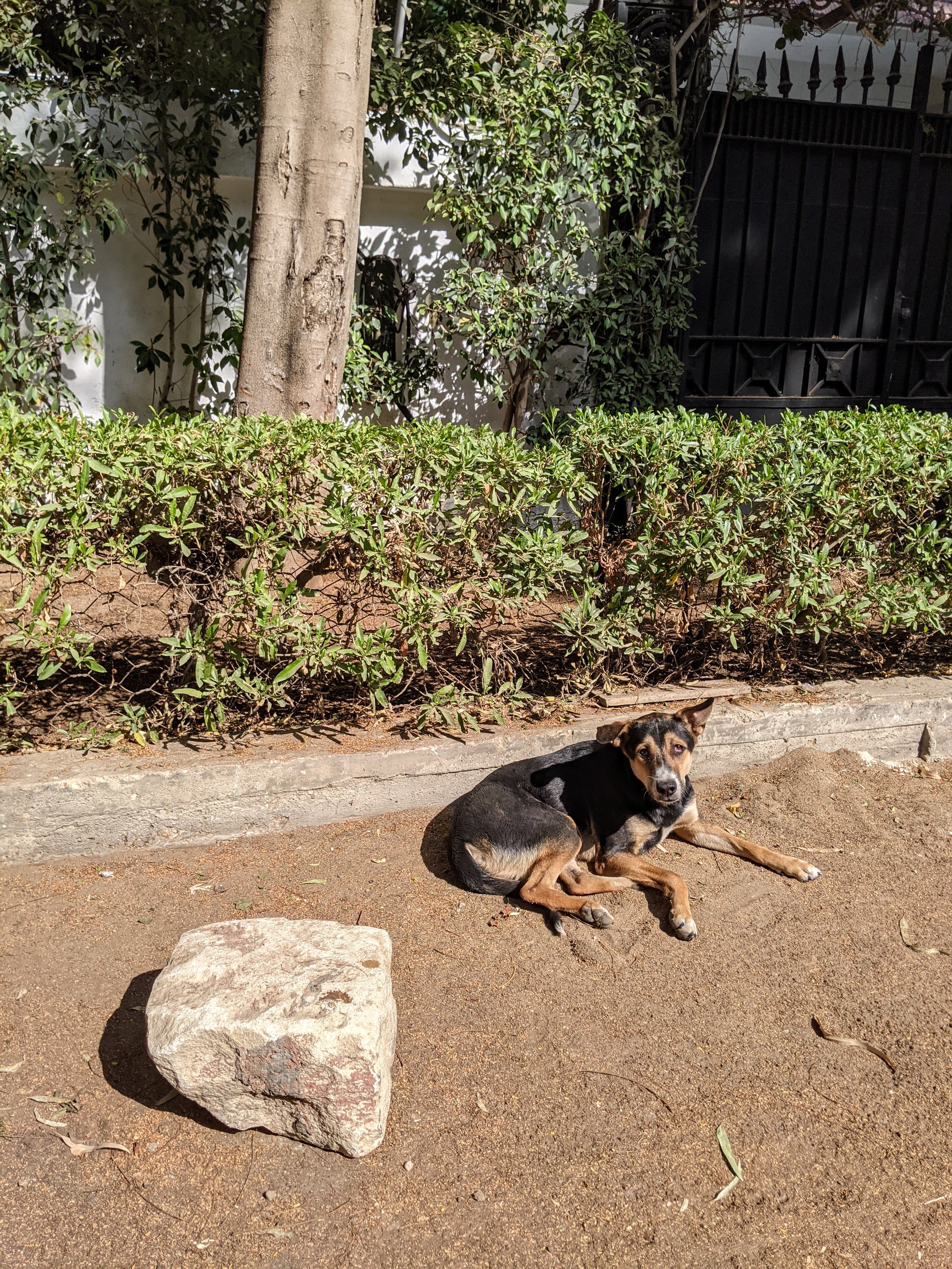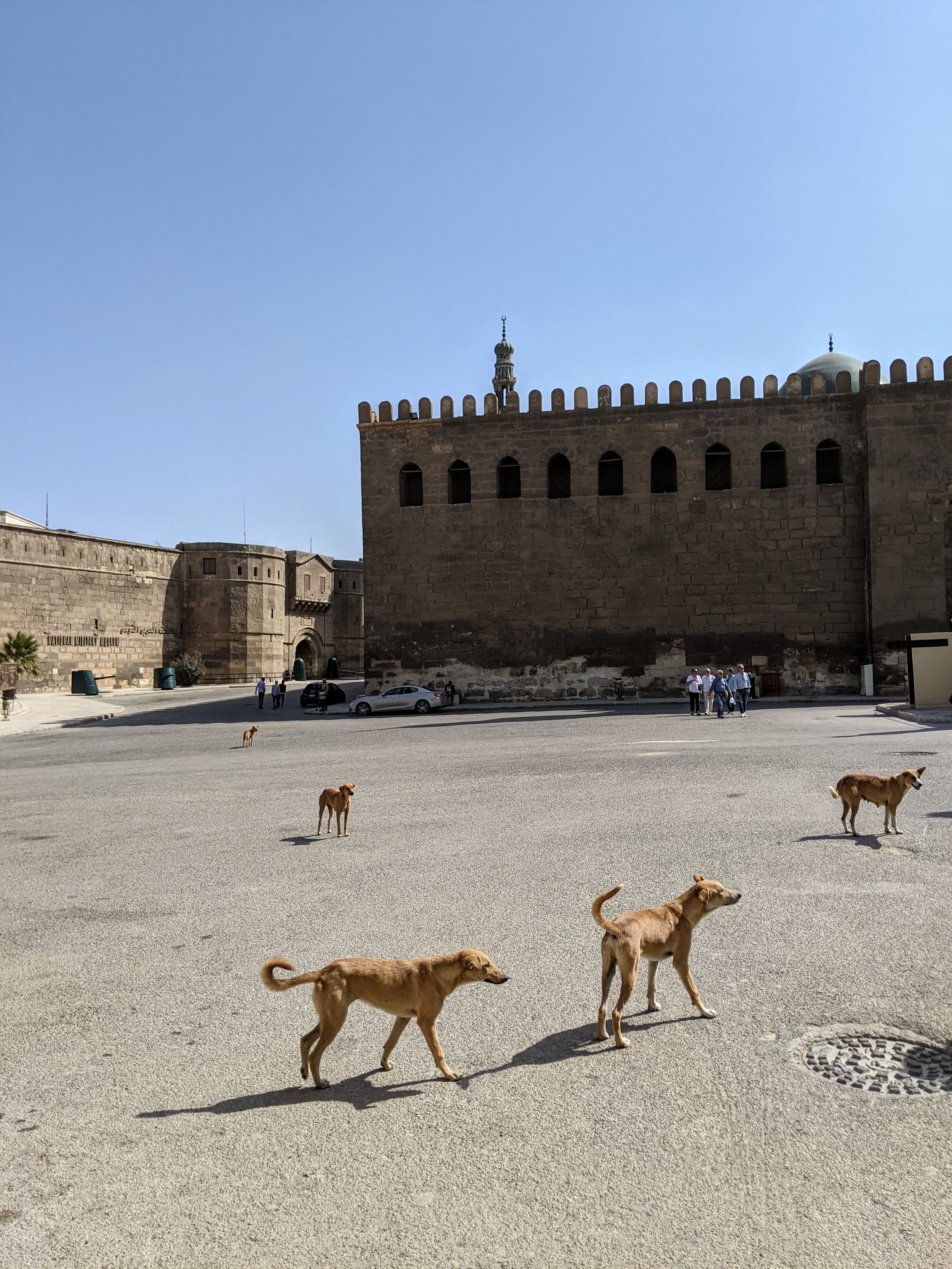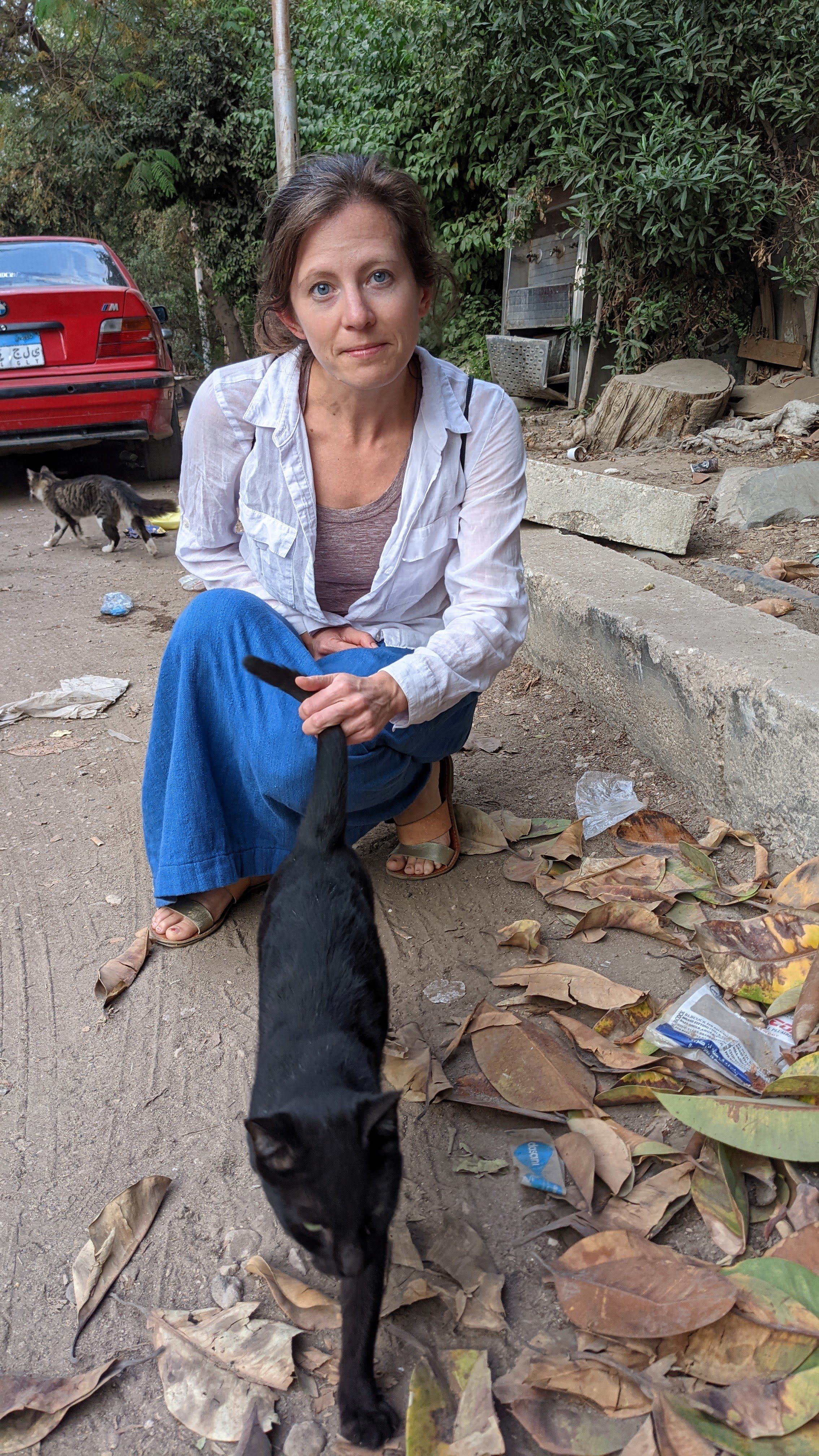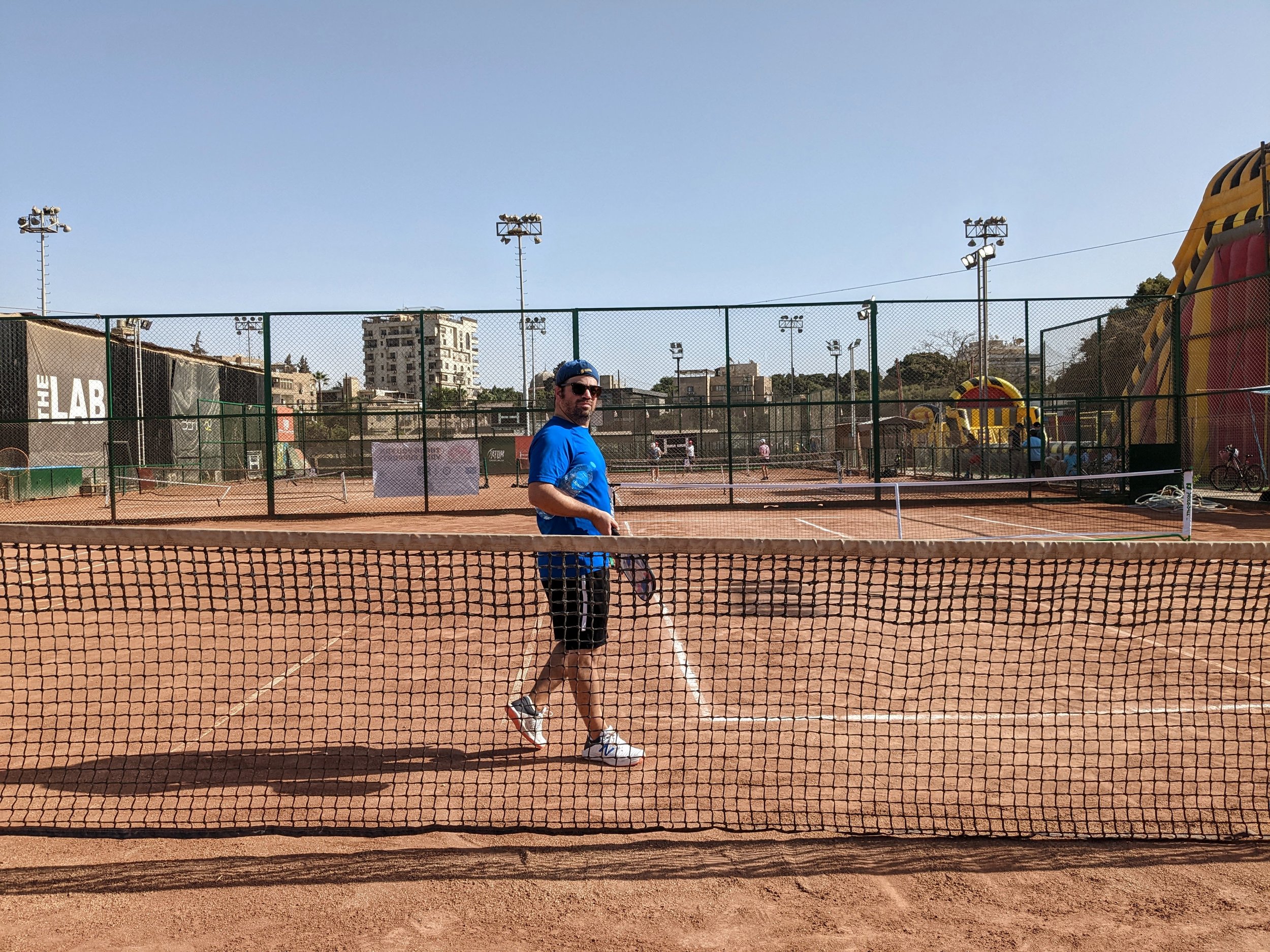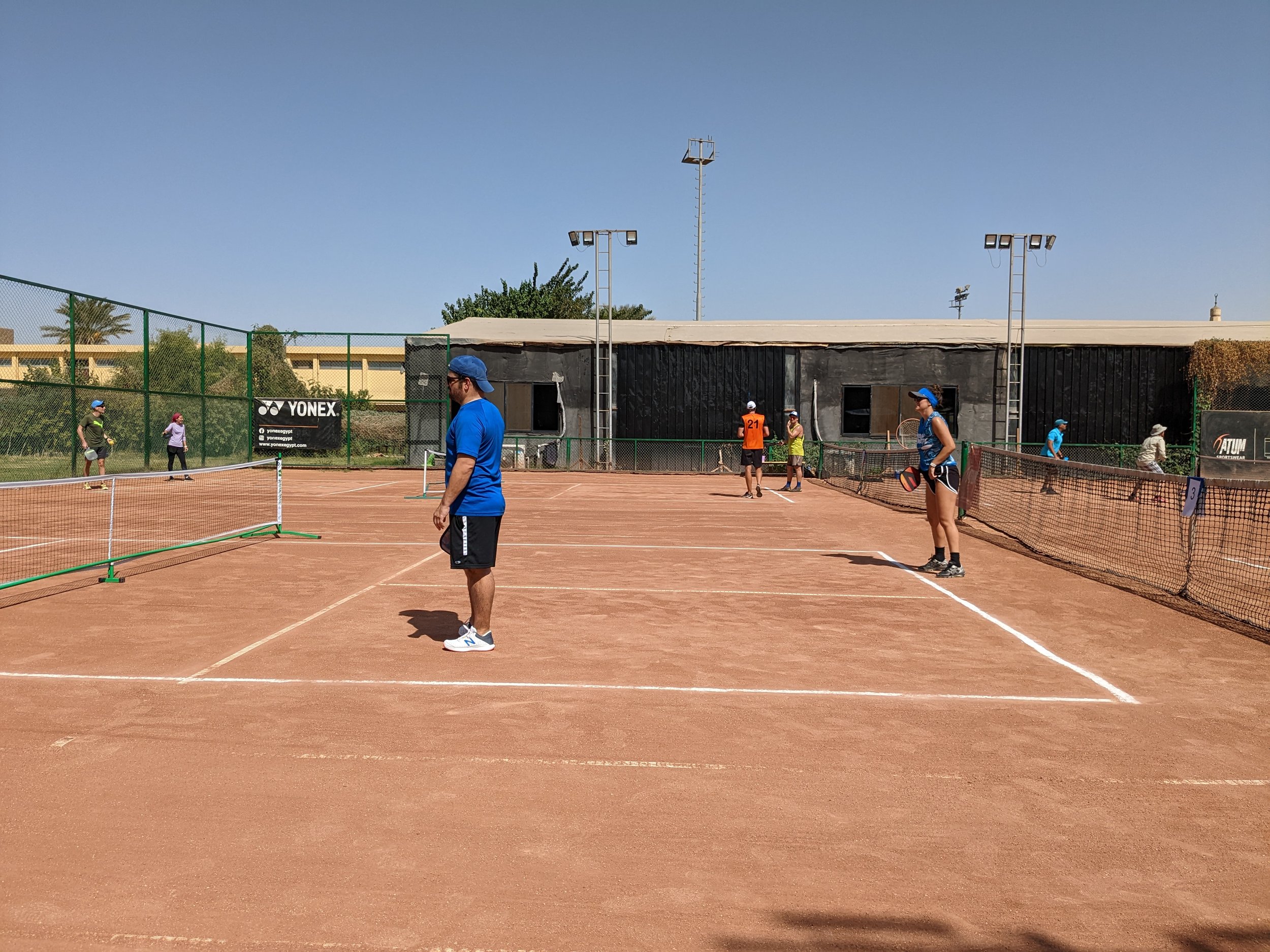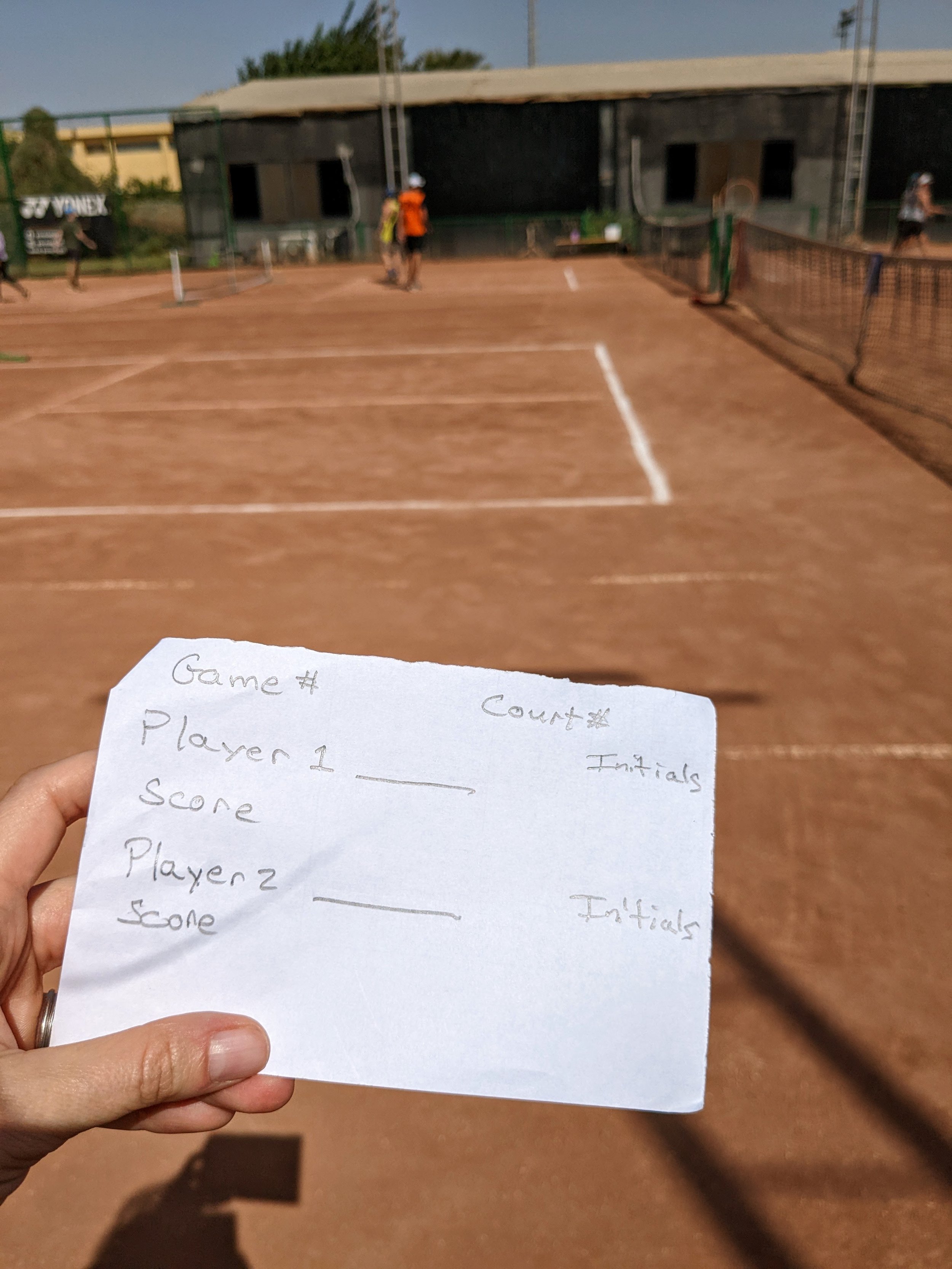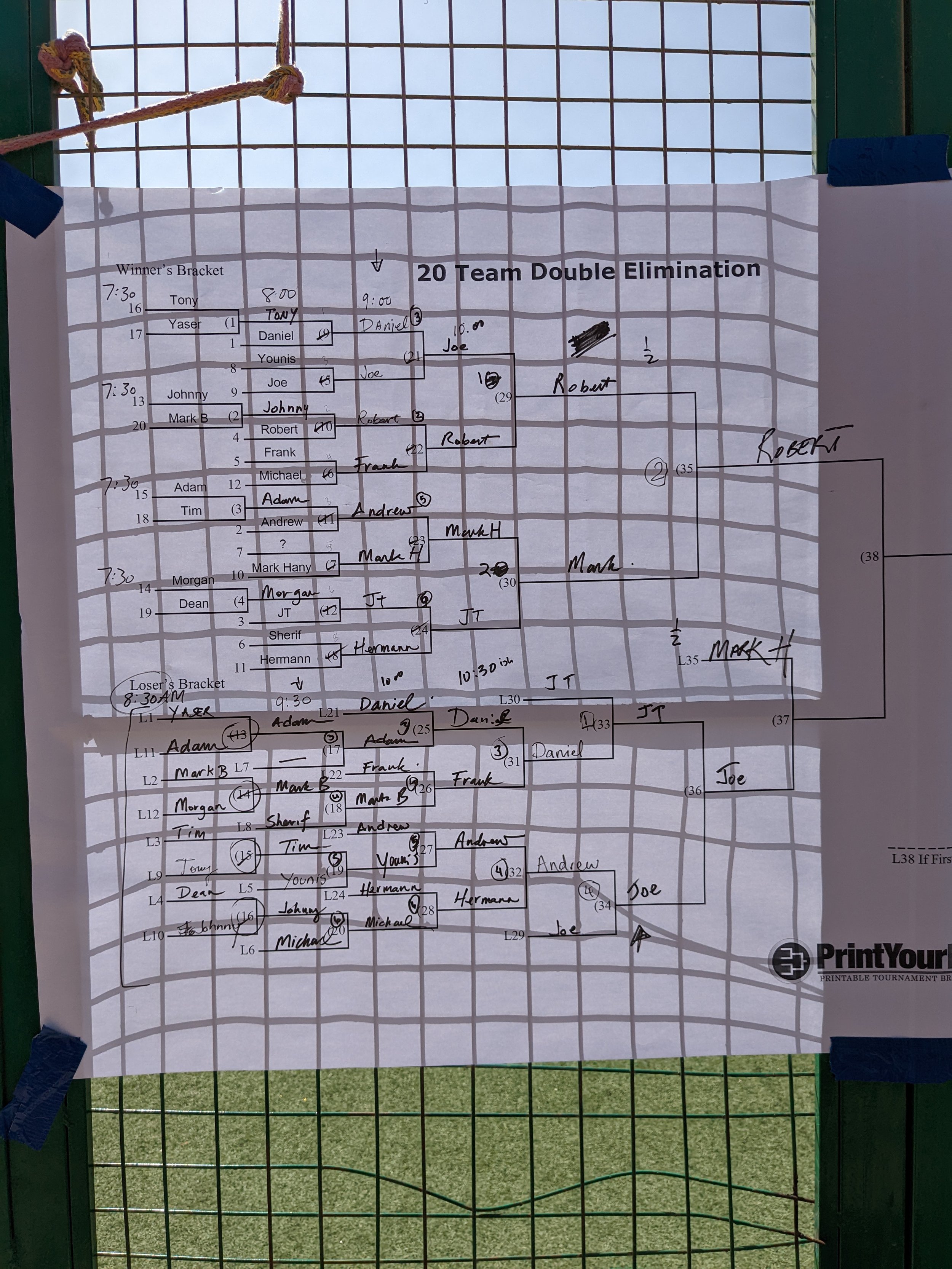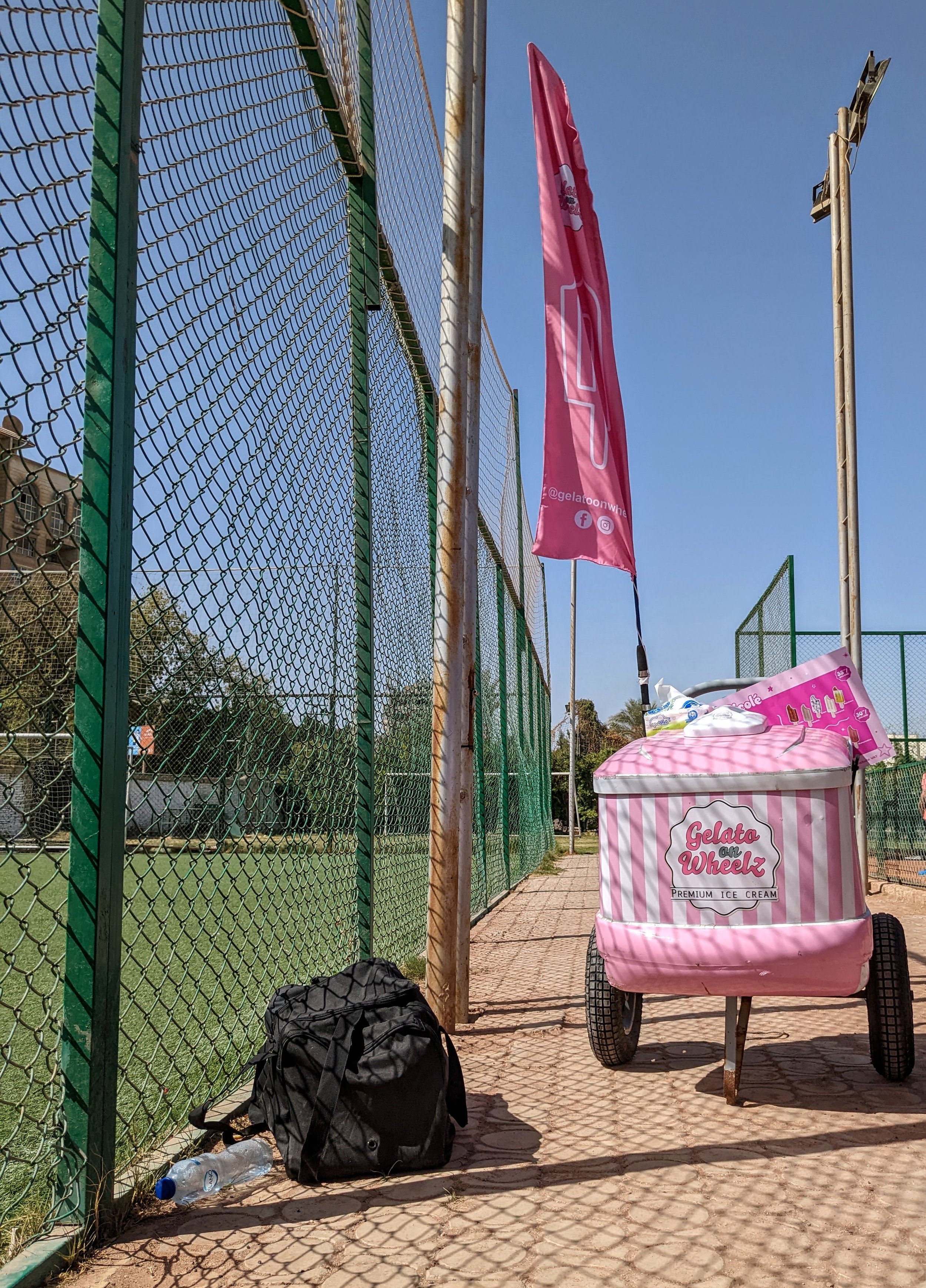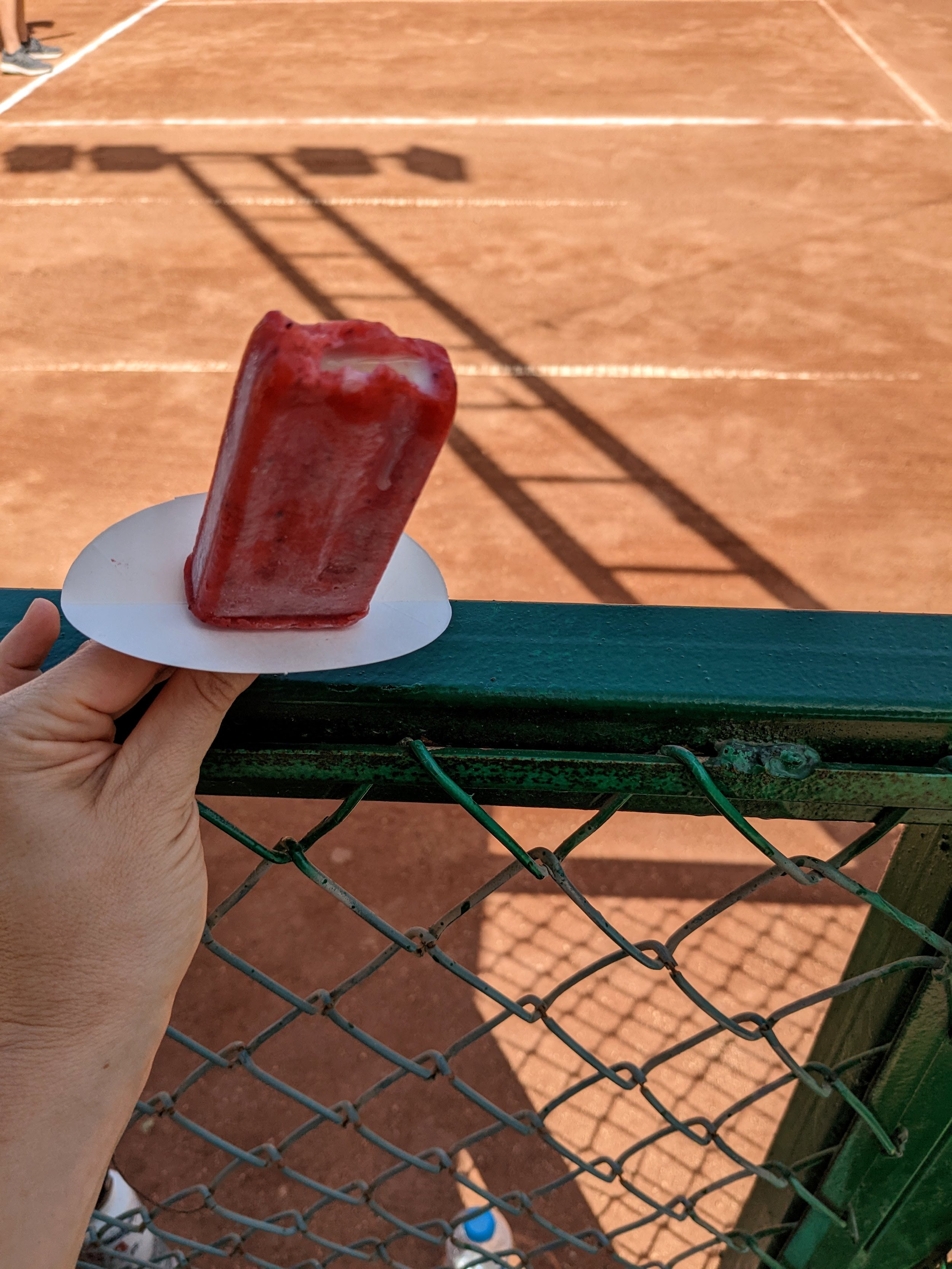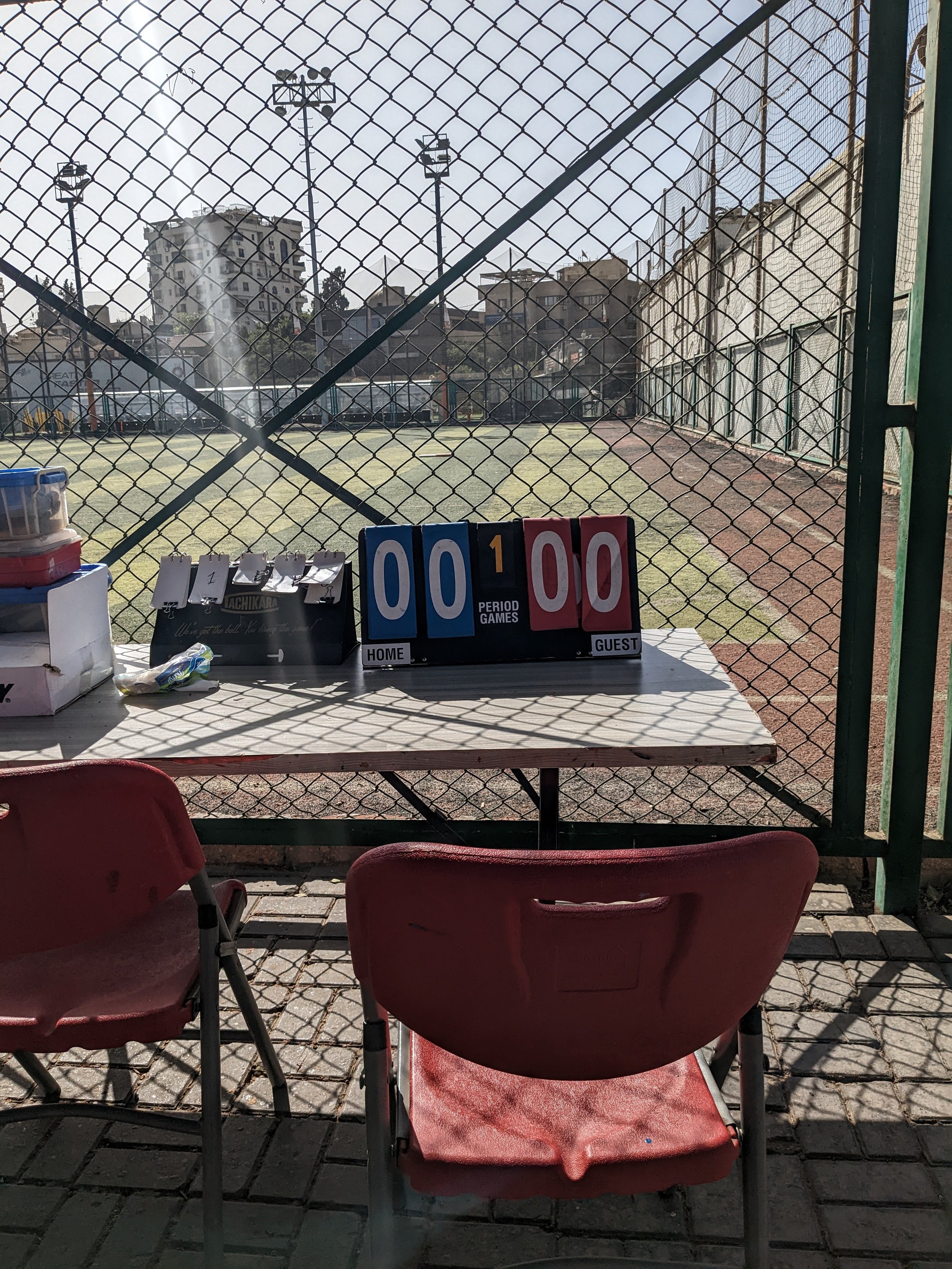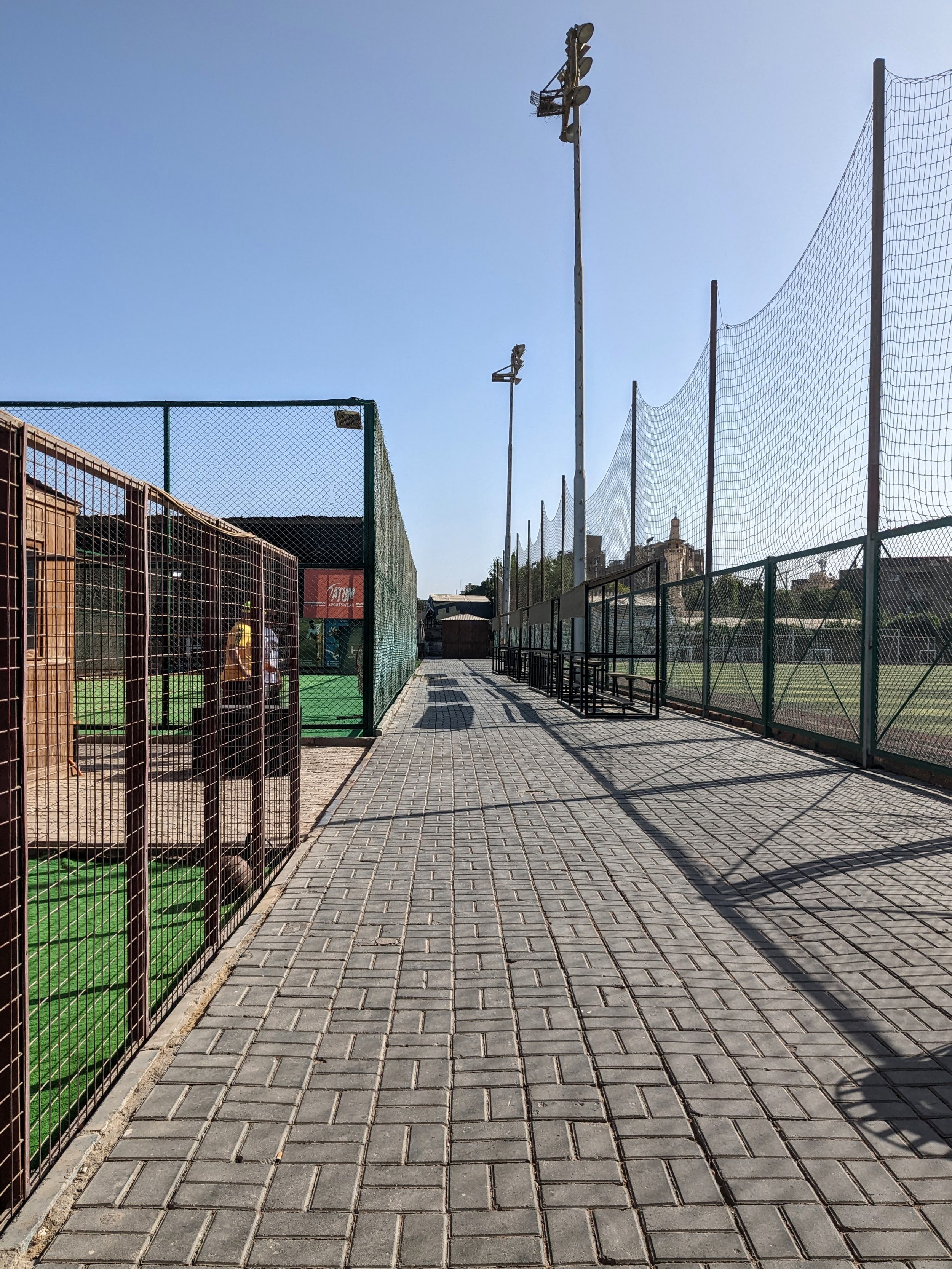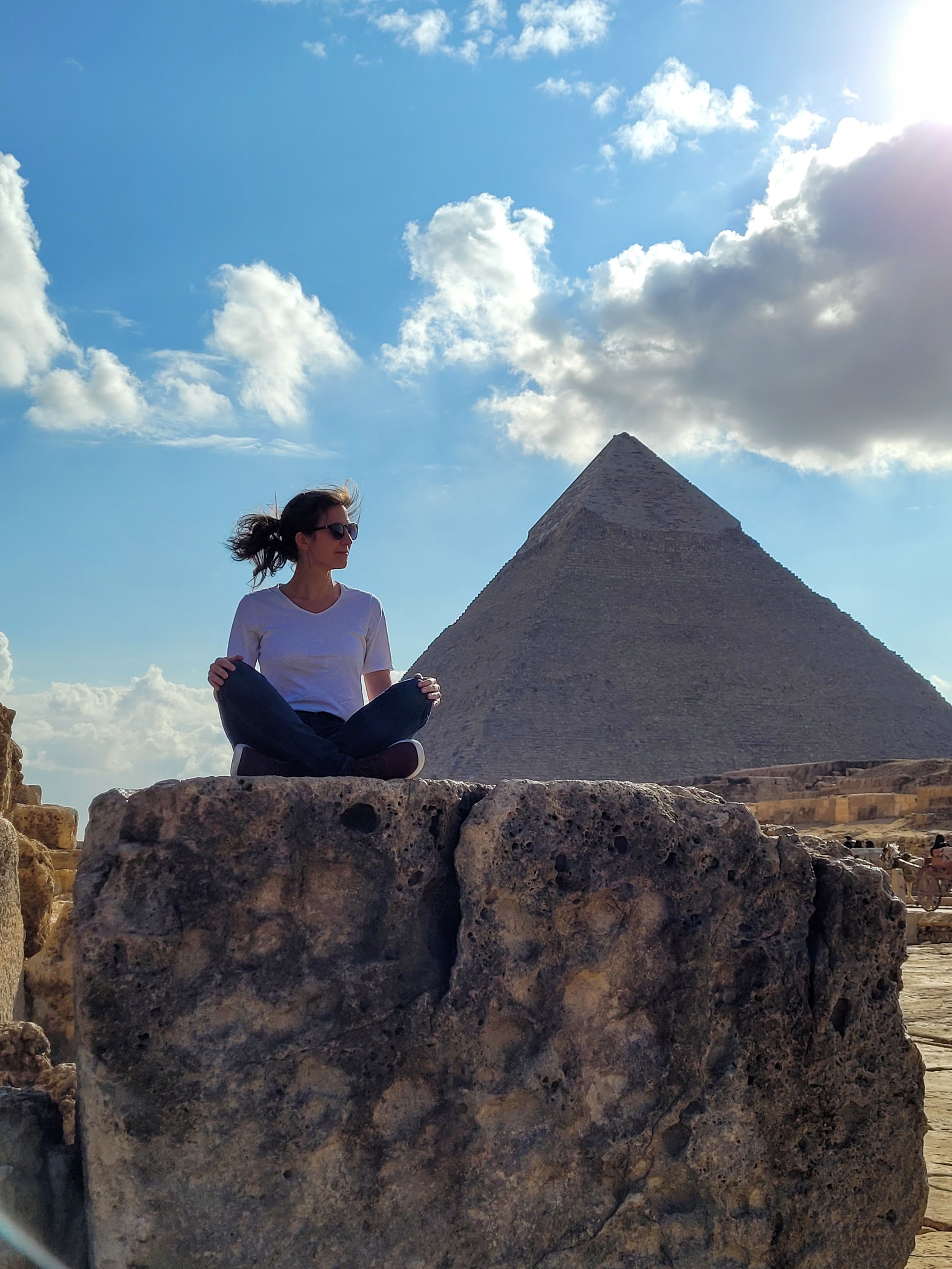exercise
The track around the field at The Field.
My dear friend,
Two weeks into our first month in Cairo—about a year ago—I threw myself dramatically onto the bed in our apartment and declared to C.: “All I want is to go for a run!”
(There may have been a few tears. What can I say? Those were overwhelming days.)
I had expected that it would be more challenging to run in Egypt than it was in Minneapolis, where I simply laced up my shoes, clipped Cedar to her running leash, and took off around the lakes. There’s the desert heat here, first of all; there’s the undue attention that comes from moving through the city as a woman clad in shorts and a tank top. But, as a friend here explained to us, the greatest challenge to running in the streets is actually the stray dogs.
All the strays C. and I have met have been sweet and nervous, but our friend told us that every now and then a dog will decide to chase him—and not always playfully. He was bitten once while jogging a year ago, and due to supply shortages and a focus on covid, for eighteen hours after the bite it didn’t look like he’d be able to track down a rabies vaccine within the requisite twenty-four-hour window.
So, I ruled out running outside. My next best option: the gym on the university’s campus. But I didn’t have the appropriate ID card to get in, and we weren’t sure how many times C. could charm the security officers into waving me through. Besides, it’s an hourlong bus-ride away from our neighborhood. The space is lovely, but was it worth the commute?
The American University in Cairo, late afternoon.
And then we found Steel Fitness! A Western-style gym a ten-minute walk from the house. There were plenty of dogs and cats hanging around, all of them very sweet and eager for attention. I was happy to oblige, as long as they agreed not to chase me on the treadmill.
The gym itself was fairly standard: cardio upstairs, weights downstairs. Of course there were some quirks: for example, I learned after my first run that if I placed my cell phone in the treadmill cupholder, the screen would go squiggly and blue and would be dysfunctional for the next few hours. C. discovered that his headphones worked everywhere in the city except in this gym. And the machines shocked us more often than we were used to. Simply pressing the arrow button to increase my speed, for instance, would result in a tiny jolt that I could feel in my hair.
(Random surges of electricity are fairly standard here. Last year, one of C.’s students sent an email informing him that she would be late because “I was kinda electrocuted by the water heater today , but I’m fine thank god see you in class.”)
But what were a few tiny jolts in the grand scheme of things, really? I was running!
Steel Fitness Club.
I suppose covid was more of a risk there than elsewhere—all those people breathing heavily on their treadmills—but somehow (for the time being) we dodged it. We kept our membership until December, and then let it lapse. I spent most of the winter running on the snowy sidewalks of Minneapolis, and in my absence C. found a different way to exercise: pickleball. I presume you’ve heard of it?
In the States, they say it’s all the rage with retirees. But it may be just as hot— though not as well-publicized—in the Egyptian expat community. Even the hundred-degree heat last week couldn’t keep the pickleball enthusiasts away from a tournament.
I stood in the shade: drinking water, wiping away the sweat rolling down my face, cheering C. on, and eating a free strawberry popsicle that turned out to be filled with sweetened condensed milk. What a life!
When C. started playing pickleball last year, the players were meeting at the courts at Maadi House: an expat club with a pool and imported alcohol (alcohol is no longer imported, due to the plummeting value of the Egyptian pound and the new restrictions on trade) and a Western-style menu that included items like lasagna and veggie burgers.
But pickleball became so popular so quickly that the group moved to a site called “The Field.” This also makes it easier for Egyptians to play; as of now, the players are probably 70% foreign and 30% local.
The Field is a sprawling complex in our neighborhood which houses a soccer field, tennis courts, multiple gyms, dance classes, and more——including, somewhat whimsically, a huge inflatable play area for kids. (I’ve often seen it inflated, but I’ve rarely seen kids in it.)
My own favorite part of The Field is the actual soccer field, as I’ve discovered that no one pays me any mind if I wander through the gates and start to jog around the track.
It’s an easy walk to The Field from our new apartment: one mostly-shady street, one harrowing traffic circle, and then you’re there. This morning, ambling over earlier than usual, I caught sight of a fleet of runners crossing a block or so ahead of me.
A friend of ours who coaches cross-country here told us that the students perform amazingly well in international tournaments. After you’ve been training all summer in Cairo, a run in Vienna in October is bound to feel miraculous. He said that some of the kids shave minutes off their fastest time.
Sometimes the pickleball crowd asks me if I intend to join them. It’s a warm and cheerful community, and the game seems pleasant enough—whenever I ask people why they think it’s gained such a following, their first answer is always: “It’s easy.” If you can hold a paddle, you can probably manage to play. The court is small, the ball is large and not too fast, and the paddle feels more like a part of your hand than an extension of your arm (in comparison, for example, to a tennis racket).
It’s a serious enough game that you can play in tournaments, or take lessons to improve your skills, but it’s a playful enough endeavor that beginners are always welcome and the competition, from what I’ve witnessed, rarely feels cut-throat. Also, you can buy a travel set and paddle anywhere—even in the rocky desert on the Sinai Peninsula! There’s talk of a November tournament in Ain Sokhna, a beach town on the Red Sea that’s only an hour’s drive from Cairo.
Pickleball travels well.
I’ve played the game once or twice, but for some reason, pickleball has yet to cast its spell on me. I’m still happier running by myself. Maybe it’s because the consistency of this routine has the power to make a strange place feel familiar to me; or maybe because I need that time, that rhythm, to settle my thoughts and work through the challenges of whatever project is it hand. Or maybe it’s because my ankle cracks loudly with every stride (thanks to an old soccer injury), and the sound of my rattling bone makes it a little embarrassing to run around with other people present.
It’s fascinating to me that C., who generally prefers to watch sports rather than play them, voluntarily signs himself up for pickleball matches three or four times per week. Who is this person? I find myself wondering, leaning against the fence in the shade. It’s fun to watch him on the court.
I knew that living in Cairo would change us—at least a little. The language, the food, the travel: everything we encounter leaves us slightly different than we were before. But I never expected that a pickleball paddle would be one of the new things that we would carry home with us.
Here’s what I’ll try to remember when I’m agonizing over my next major decision: maybe the “big things”—moving away, buying a house, starting a job—aren’t actually the things that shape us. In the end, it’s the little things, the decisions that don’t even feel like decisions—accepting an invitation to coffee, picking up a pickleball paddle, buying a book that a friend recommends—that have the greatest impact, that ripple out in ways we couldn’t have foreseen.
Speaking of trying new things, I just saw an announcement for a half-marathon at the pyramids. What do you think? Should I do it?
Yours—L.


